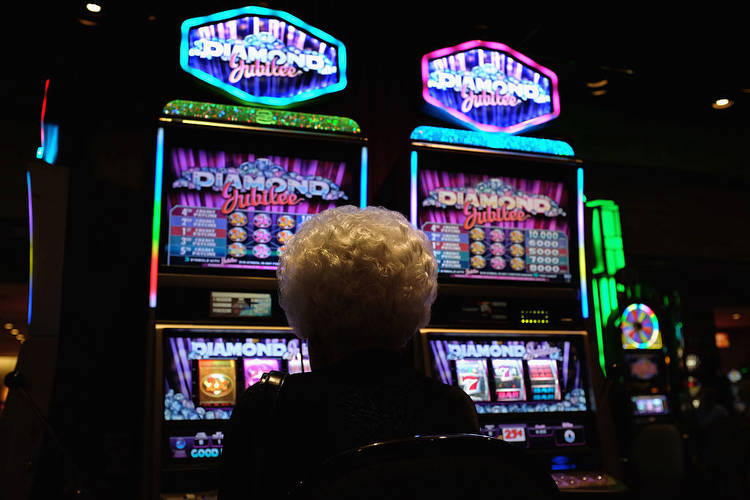As gambling revenue climbs, lawmakers advance bills to curb gaming addiction

As casino and online gambling revenue continued its pandemic-precipitated climb, state lawmakers worried that gaming addiction has kept pace passed a series of measures Monday meant to discourage youth from gambling and divert problem gamblers from the criminal justice system.
Assemblyman Ralph Caputo (D-Essex) sponsored measures that would create a gambling treatment diversion court program, prohibit sports betting advertising at public colleges and universities in New Jersey, and require school districts to instruct high school students about the risks of compulsive gambling as part of their health curriculum.
Caputo chairs the Assembly’s tourism, gaming, and the arts committee, which unanimously advanced the bills Monday.
At the same time, Caputo has been a decades-long champion of gambling in New Jersey. A former casino executive, Caputo has another bill pending that would extend online gaming, first legalized in 2013 for a decade, to 2033. He also was behind a failed2016 effort to allow slot machines at state racetracks.
Monday, he said he introduced his newest legislation to fight addiction, which he called gambling’s “unintended consequences.”
“We all voted for these things, but at this point, there’s some negative impact of some of the things that we did do, and we’re trying to pull it back a little bit,” he told the New Jersey Monitor.
The committee split along party lines on a separate resolution that urges the Assembly to condemn the “overproliferation” of pro-gambling advertisements in New Jersey due to the addictiveness of gambling and urge sports betting companies and casinos “to exercise restraint and good judgment” when advertising.
Casinos’ and betting companies’ “fight for revenue is just getting out of hand. And that’s what it is — it’s a vicious fight for market share. And the public is suffering for it,” Caputo said. “This advertising is way over the top.”
Assemblyman Don Guardian (R-Atlantic), who served as Atlantic City’s mayor from 2014 to 2018, said he voted against the resolution with the panel’s other two Republicans because “internet and sports gaming are in their infancy.”
“The only way that they expand is to advertise, and the more advertising they do, the better they do,” Guardian said. “So I can’t be hypocritical if, as a state, we’re so excited about having internet and sports gaming and collecting 200-plus million dollars in taxes just on those two types of gaming, and then say no, the one way that you can’t promote it is to advertise.”
The legal age to gamble in New Jersey is 21, but gambling addiction experts say many people start far younger.
The National Center on Problem Gambling estimates up to 6% of kids ages 12 to 17 have a gambling problem, while up to 14% are at risk of developing an addiction. And the Responsible Gambling Council says young adults risk becoming problem gamblers because they act more impulsively and their decision-making hasn’t matured.
That’s why two of his bills center on young people, Caputo said.
“The fact that they’re marketed to a lot of young people, whose addictions have picked up, is a problem,” Caputo said.
The Council on Compulsive Gambling of New Jersey began piloting new lessons two weeks ago in a West Orange high school.
The bills drew a steady stream of ex-gamblers and addictions experts who implored legislators to pass them.
Dan Trolaro of Morris County told lawmakers he was a financial planner who embezzled $2 million from his clients because of his gambling addiction. He spent eight months of a six-year sentence behind bars and another 37 months in an intensive supervision program. He has been in recovery for 13 years.
Trolaro urged lawmakers to pass the bill that would create a diversionary court, modeled after a similar program in Nevada, for law-breakers who commit crimes to support their gambling addiction. Under that bill, three courts would be created in northern, central, and southern vicinages.
Prison is not a place where gambling addicts can heal, Trolaro said.
“There was gambling every day in prison, and that’s part of the issue,” he said.
The bill had one detractor — the court system.
Andrea Johnson of the state Administrative Office of the Courts told lawmakers the courts system supports the spirit of a diversionary court but urged them to instead divert these offenders to existing diversionary programs, instead of creating a new program at a time when courts are overwhelmed by record-high judicial vacancies.


















